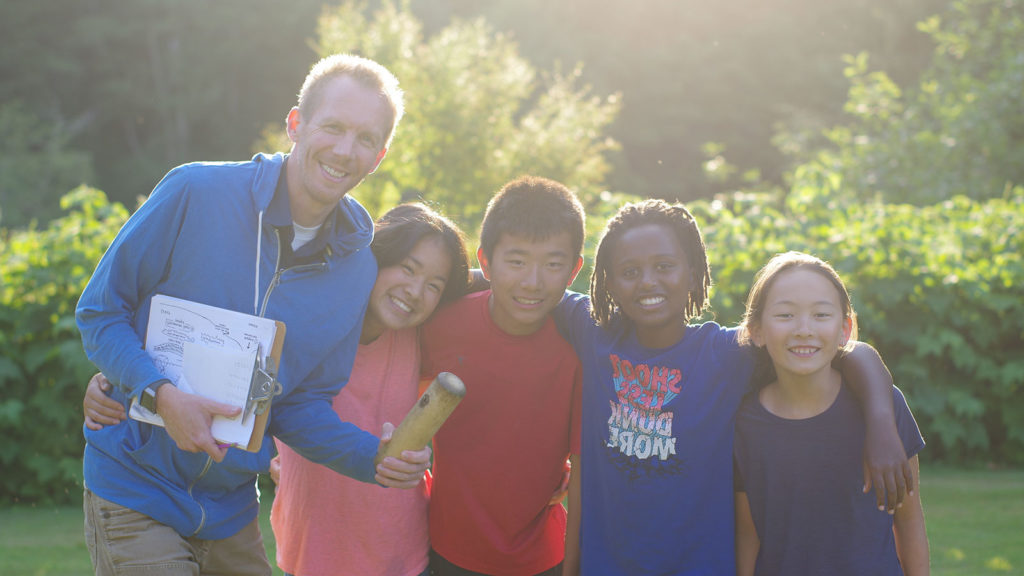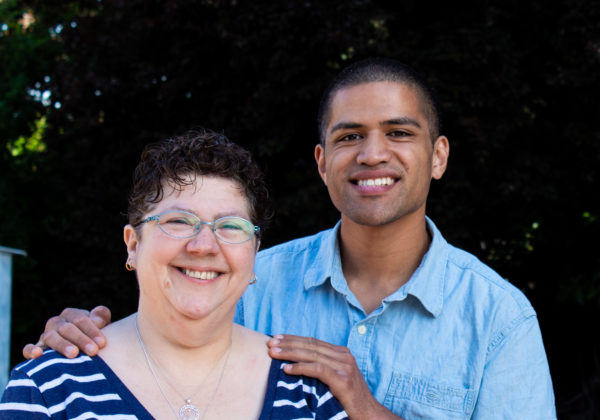It’s travel season — the time when many adoptive families begin to plan trips back to their child’s birth country. Whether traveling independently or with a tour group, it’s important that you and your child are prepared. The following article from Adoptive Families Magazine gives adoptive parents things to think about before planning a “homeland journey,” as well as some practical tips for preparing for your trip.
Homeland travel can be an excellent bonding experience for your entire family. Help your child prepare and make the most of the journey.
by Colleen Calvani (published by Adoptive Families Magazine)
When children experience firsthand the sights, sounds, tastes, and smells of the place they were born, they begin to understand their own place in the world.
Parents can help children use the homeland journey as a springboard for building their identities — and create memories that will last a lifetime.
Is my family ready for a trip like this?
Before deciding to go, parents and kids should consider why they want to go. Is it to learn more about the birth country, or to find information specific to the child’s adoption?
Most professionally organized homeland journeys offer a mix of both.
- To find out what is right for your family, ask! Talk with your child about her expectations for the trip. Will she be comfortable seeing her orphanage or meeting her birth family? Do you need more information about the birth family’s past and health history? Does your child have fears about his birth country that might be allayed — or magnified — if he returns?
- Make sure your child knows that it’s OK to go back to her birth country just to enjoy the culture. “It can be a get-to-know-your-birth-country type of trip, to really allow your child to understand that this country is part of her,” says Jean MacLeod, a homeland tour leader with Our Chinese Daughters Foundation. “You can always tie in adoption later.”
- Discuss scenarios your family might encounter during a homeland journey — such as discovering new, possibly negative, information or being unable to reconnect with an old friend. Social worker Deborah Johnson advises, “Talk about the trip with the caveat that it may not turn out the way you expect.” International travel is hectic, and plans can change quickly. If a side trip to meet the birth mother in St. Petersburg falls through, make sure your child understands that it’s OK — there are plenty of other experiences to be had. “Understand that this trip is part of a process, and you can learn just as much from an unexpected experience,” MacLeod adds.
- Consider the length of travel time and the breadth of your family’s travel experience before planning a heritage trip. Is your family ready for the realities of international travel — airport delays, uncomfortable seats, culture shock, and jet lag? A 14-hour flight can be difficult for even the most experienced traveler. If your family has not previously traveled long distances together, or has had little experience with other cultures, consider traveling domestically to a place that might have cultural significance for your child.
Are my kids old enough?
There is no “right” age for children to go on a homeland journey — each age brings different benefits. Consider your child’s maturity level and his ease with talking about adoption before making your decision.
- Experts recommend taking a child on her first birth country trip sometime between the ages of six and 12, if family finances permit it. In this age range, children are still enthusiastic about traveling with their parents and are open to the new experiences they will encounter. Making friends is easier, and parents still wield some influence over children’s perceptions.
- The earlier you go, the sooner you can instill in your child a positive view of his birth country. Dr. Jane Lietdke, of Our Chinese Daughters Foundation, explains that a child who feels good about the place he comes from also feels good about himself — a valuable asset to take into adolescence.
- Older children will grasp geographic, political, and sociological concepts that are over younger children’s heads. They also possess the vocabulary to communicate with their parents and can independently work through some of the emotions generated by the trip.
- Homeland trips can be booster shots of self-esteem for teenagers — right when they need it most. Johnson often sees this effect with girls, who may feel that they look “different,” and that they are not as attractive as girls they grew up with. Johnson says, “I see that over and over again — that moment of seeing the beauty of the people they come from.”
- Don’t worry about your teenager’s self-consciousness or hesitation about traveling with a large group. MacLeod adds, “Teens do eventually warm up — it just takes them a little bit longer.”
Who should we bring with us? Is group homeland travel easier?
In general, the more people who share the trip with your child, the better.
- Take at least one other person on the journey with you and your child — a travel partner will come in handy in case a parent or child gets sick and needs support. “There’s great value in having the family, as a group, experience the culture of a child’s birth,” says Jeff Mondloh, of Children’s Home Society and Family Services in Minnesota.
- When you return from the trip, family members will be able to discuss their experiences from a first-person perspective, providing emotional support for each other.
- Decide whether an organized group or family travel is a better fit for you. Both types offer advantages, either in companionship or spontaneity. Traveling on your own as a family gives you the freedom to decide the course each day.
On the other hand, if you like a highly organized schedule, a group trip — usually led by an adoption professional and often accompanied by a social worker or counselor — is probably right for you. With no worries about travel details, parents can relax and be involved in their child’s experience.
Another benefit of group trips is that they bring together people who have similar histories and who are experiencing similar emotions. Children often return from a group heritage trip with friendships that will last for years to come.
“Some kids feel they’ve met their long-lost sister or brother,” Johnson says. “For kids who aren’t around peers who share their ethnic background, the friendships often become a lifeline for them when they get home.”
- Find a guide who can be an interpreter at important meetings, no matter which option your family chooses, Jean MacLeod recommends. Even the most independent traveler encounters unforeseen language barriers.
How can we prepare for the trip?
Start getting ready for your trip at least a year in advance; if there are financial considerations, begin your planning even earlier.
- If you want to contact a foster family or birth family, Mondloh recommends contacting the adoption agency as much as a year and a half before traveling.
- Read the information packets! Most group tours begin sending them to families about a year before the trip. The mailings include tips for preparing, such as what to pack, how to understand poverty in the birth country, information about searching for birth families or visiting your child’s orphanage, and ideas for gifts to bring with you to the orphanage or to the foster or birth family.
- Let the whole family help with planning your trip. Make a list of what each family member would like to do: shop at local markets, visit an orphanage, and see historical monuments, and so on— but with the understanding that it may not be possible to do everything.
- Be flexible. From missed planes to language barriers to unexpected encounters with birth relatives, knowing that you can’t control every aspect of the trip will help kids take it all in stride. Talk about the practical aspects, such as sleeping arrangements, ahead of time.
What will kids want — and need — to know?
While you are discussing logistics, be prepared to answer your child’s questions about his pre-adoption history. He may ask questions he hadn’t thought of before, such as, “Who took care of me? Did they do a good job? Where was I found?”
“Kids often try to put the pieces together to find out if somebody loved and cared for them in their birth country,” Johnson says.
- Point out the important connections and moments. Your child will not automatically comprehend how these new experiences fit into her story. At the orphanage, for example, say, “See how much these caregivers love and take care of the kids? I bet that’s what it was like when you were here.”
- Prepare honest, realistic responses that kids can understand. Once they’ve seen their birth country and its children, kids often wonder how they ended up in your family — why you chose a child of a different heritage, for example, or how you picked that particular country.
“That’s not one you want to stutter and stumble on,” Johnson says.
If you don’t know the answer to a question, say so. When parents shrug off a question or make up an answer, kids — especially teenagers — often see through it.
That can do more damage than facing the tough reality: Sometimes, there just are no answers. When your child asks a difficult question, Johnson suggests saying, “I don’t know, either. But let’s figure out how to find the answer together.”
- Give your children plenty of chances to talk about what they’re experiencing. Jean MacLeod says parents should look for signs of “acting in” — such as depression, being overly quiet, withdrawing — and “acting out” — such as tantrums or anxiety attacks. “It’s up to parents to take the pressure off, to help kids verbalize their feelings,” she adds.
- Take some time off from the schedule — even if it’s just for a morning. Hanging out in the hotel room will help your family decompress.
How will the trip affect my child?
Whether a child already has memories of her place of birth or is experiencing its culture for the first time, it’s important that the heritage trip be only the beginning of her journey.
- Provide chances to talk about what your child experienced, and help him meld his new understanding of his culture, his adoption experience, and his life at home.
- Talk about the trip as a family — so everyone’s experiences can be validated, Johnson says. But before you get home, make sure that there is agreement among family members about what information will be shared with friends and extended family — and what will be kept private, such as details about a birth family reunion. Let the adoptee take the lead when determining what your family is comfortable sharing.
- Incorporate elements of the birth culture into everyday life, once you get settled at home. If you had meals you particularly enjoyed, for example, learn how to make them at home.
- Keep in touch with other families who were on the trip with you. Get involved in a local community of your child’s ethnicity and sign up for heritage and language camps — they will strengthen the connections your child made during the trip.
“Homeland journeys are about self-love, self-acceptance, and becoming comfortable with your identity,” Johnson says. Once a child feels like he has a place in the world, he will walk with his head held higher, with a poise that was not there before the trip.
She adds, “If that’s all your kids get out of the trip, it’s worth every penny, and 10 times that.”

Holt Post Adoption Services
Holt offers lifelong support to all adoptees, adoptive families, birth parents, caregivers and others whose lives have been touched by adoption.


